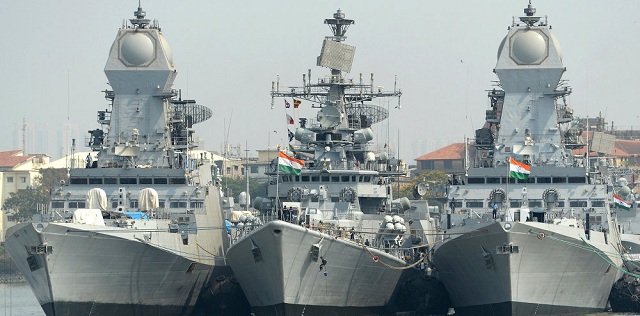In a landmark move to strengthen national defence capability and promote domestic manufacturing, the Defence Acquisition Council (DAC), chaired by Defence Minister Rajnath Singh, has approved capital acquisition proposals worth approximately ₹1.05 lakh crore. The clearance covers ten major proposals under the ‘Buy (Indian–Indigenously Designed, Developed and Manufactured)’ or ‘Buy (Indian-IDDM)’ category, ensuring the entire procurement will be sourced through Indian firms.

The acquisitions are part of the government’s strategic focus on self-reliance in defence production under the ‘Aatmanirbhar Bharat’ initiative. The proposals were granted Acceptance of Necessity (AoN), a crucial first step in the capital acquisition process.
Key Approvals Across Armed Forces
The proposals cover a wide range of operational and logistical platforms for the Indian Army, Navy, and Air Force.
For the Indian Army:
-
Armoured Recovery Vehicles (ARVs): These vehicles will provide vital support for battlefield logistics by recovering damaged or stranded tanks and equipment under combat conditions.
-
Electronic Warfare Systems: Advanced systems aimed at enhancing situational awareness and countering electronic threats from adversaries were also cleared.
For the Indian Air Force:
-
Surface-to-Air Missiles (SAMs): These systems will improve India’s air defence shield, providing greater protection against aerial threats including drones, missiles, and aircraft.
For the Indian Navy:
-
Moored Mines and Mine Counter Measure Vessels (MCMVs): These procurements will boost the Navy’s underwater defence and mine-warfare capabilities, essential for securing key maritime zones.
-
Super Rapid Gun Mounts (SRGMs): High-speed naval artillery systems to enhance warship firepower in combat scenarios.
-
Submersible Autonomous Vessels (SAVs): These unmanned systems are designed for surveillance, reconnaissance, and mine-detection missions in contested maritime environments.
Integrated Common Inventory Management System
The DAC also approved the establishment of an Integrated Common Inventory Management System (ICIMS), a tri-services logistics platform aimed at streamlining supply chains across the Army, Navy, and Air Force. This system is expected to significantly reduce redundancy, improve asset tracking, and enhance operational readiness through optimized inventory control.
Strategic Importance
This massive procurement push underlines India’s intent to rapidly modernize its military forces while reducing dependency on foreign suppliers. With all ten proposals under the Indian-IDDM category, the government has reaffirmed its commitment to building a robust domestic defence industry capable of producing world-class systems across land, air, and sea domains.
The Ministry of Defence emphasized that indigenous manufacturing would not only enhance India’s strategic autonomy but also create high-skilled jobs and stimulate innovation in sectors such as electronics, robotics, artificial intelligence, and materials engineering.
With the latest round of approvals worth ₹1.05 lakh crore, the Indian government has taken a significant step toward strengthening the country’s defence preparedness while reinforcing the goal of self-reliance in defence production. The decision is expected to accelerate India’s journey toward becoming a major global defence manufacturing hub, backed by innovation, indigenous capability, and strategic foresight.




